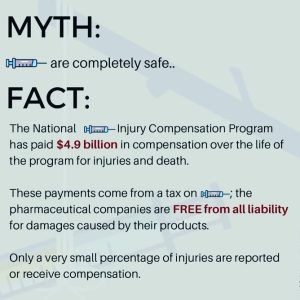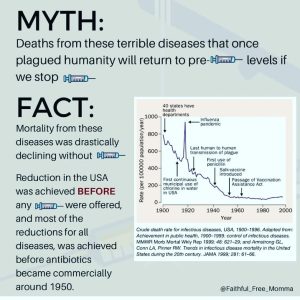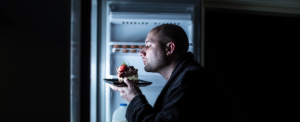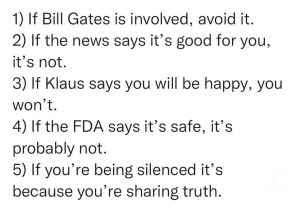
Vaccines Are Safe Myth vs Fact

Polio Vax Myth vs Fact

Vaccine Myth vs Fact

Vaccine Schedule

Emergency Exit

Eating late can alter how you burn calories and store fat

A recent study suggests eating later in the day can directly impact our biological weight regulation in three key ways: through the number of calories that we burn; our hunger levels; and the way our bodies store fat.
With obesity now affecting hundreds of millions of people worldwide, this is a valuable insight into how the risk of becoming obese could be lowered in a relatively simple way – just by eating our meals a few hours earlier.
Earlier studies had already identified a link between the timing of meals and weight gain, but here the researchers wanted to look at that link more closely, as well as teasing out the biological reasons behind it.
“We wanted to test the mechanisms that may explain why late eating increases obesity risk,” said neuroscientist Frank Scheer, from Brigham and Women’s Hospital in Boston back in October when the study was published.
“Previous research by us and others had shown that late eating is associated with increased obesity risk, increased body fat, and impaired weight loss success. We wanted to understand why.”
The research was tightly controlled, and involved 16 participants with a body mass index (BMI) in the overweight or obese range.
Each volunteer went through two different experiments lasting six days, with their sleeping and eating tightly controlled beforehand, and several weeks between each test.
In one experiment, the participants kept to a strict schedule of three meals a day around the normal times – breakfast at 9am, lunch at 1pm and dinner around 6pm.
In the other, the three meals were shifted back (the first around 1pm and the last around 9pm) – so lunch, dinner and supper.
Through blood samples, survey questions and other measurements, the team was able to make a number of observations.
When eating later, levels of the hormone leptin – which tells us when we’re full – were lower across 24 hours, indicating participants may have felt hungrier. What’s more, calories were being burned at a slower rate.
The tests also showed that adipose tissue gene expression – which affects how the body stores fat – increased the adipogenesis process that builds fat tissues, and decreased the lipolysis process that breaks fat down.
Here, we’re looking at a combination of physiological and molecular mechanisms pushing up the obesity risk.
“We isolated these effects by controlling for confounding variables like caloric intake, physical activity, sleep, and light exposure, but in real life, many of these factors may themselves be influenced by meal timing,” said Scheer.
Of course obesity can lead to other health issues, including diabetes and cancer, and so finding ways to stop it from developing in the first place would make a huge difference to the health of the global population.
What this study shows is that eating earlier in the day can impact three key drivers of the way our bodies balance energy and the subsequent obesity risk – and it’s a change that’s perhaps simpler for some people to manage than sticking to a diet or exercise regime.
Yer Blood’s Worth Bottlin’!
How’s this for interesting. I just got back from the USA (no issues with being unjabbed btw) and found out they’re paying USD $1,500 for blood plasma donations from unjabbed people. You can donate every month.
They need it for cancer patients as ‘apparently’ patients aren’t responding to plasma from the vaccinated and in some cases it’s making them sicker.
They’re also paying big bucks for unjabbed O- blood donations.
Looks like we ‘conspiracy theorists’ may be the people they need to help the world recover from the damage the jab caused. Oh the irony…
The Difference Between Baking Powder and Baking Soda
Packets of Mrs Rogers new Baking Powder and Baking Soda were on the kitchen bench the other day, and Miss Eight asked what the difference was, so we thought that’s a good topic for us to post in case you find yourself in the same situation with a curious young baker.
Baking powder and baking soda may seem similar, but they actually work in different ways to help our cakes and cookies rise and become fluffy and delicious.
Think of baking soda as a little helper who needs a friend to do the job right. Baking soda is like a magician’s wand, but it needs an acidic friend like vinegar or lemon juice to work its magic. When they team up with moisture, they create carbon dioxide bubbles that make our baked goods rise.
Now, baking powder is like a superhero that can work on its own. It already has baking soda inside, along with a little bit of acid called cream of tartar, and some starch to help it dry out. So, when it gets wet, it creates the bubbles all by itself and makes our treats fluffy and yummy.
Remember, when you’re baking, always follow the recipe and use the right leavening agent. If the recipe calls for baking soda, don’t use baking powder instead, because it won’t have an acidic friend to work with.
If you don’t have baking soda but you do have baking powder, don’t worry! You can use three times the amount of baking powder instead. But, there’s a little trick to it. Baking powder has salt in it, so you need to use half as much salt as the recipe says. That way, everything will turn out just right!
So, now you know the difference between baking powder and baking soda! They may seem like boring kitchen ingredients, but they’re actually little helpers that make our baked goodies rise and taste amazing!
Life Hacks 2023

